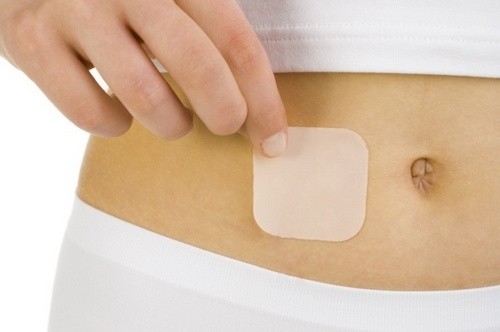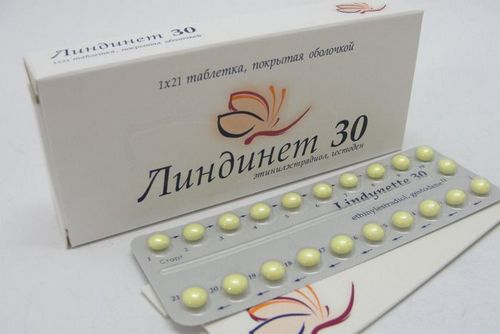There are a lot of contraceptives. In order to navigate their choice, it is necessary to consider in detail the types of this assortment.
All hormonal preparations contain sex hormones: estrogens and gestagens. These hormones suppress the process of ovulation and condense the natural fluid that the cervix secretes. As a result of this, it is difficult for sperm to penetrate the uterine cavity.
In addition, the intake of new sex hormones slows down the production of their own. Because of this, the egg does not ripen, which means that pregnancy will not occur.
The main groups of contraceptives:
- hormonal birth control;
- spirals;
- candles;
- barrier means;
- natural methods.
The most effective are hormonal drugs.
Hormonal contraceptives are divided into the following types:
- vaginal ring;
- patch;
- injections;
- tablets.

In no case should you take these drugs on your own. Hormonal drugs contain many contraindications. Only after a medical examination, the doctor will prescribe this or that remedy.
Contraceptive ring
The vaginal ring Nova Ring is a modern contraceptive for women. It is a transparent elastic ring that is inserted into the vagina.
It is necessary to start using the ring from the first day of the menstrual cycle. A contraceptive secretes hormones of a certain amount within 3 weeks. After that, a woman should extract a contraceptive without the help of a gynecologist. After 7 days, the ring is reinstalled as intended.

Side effects: migraines, nausea, vaginal discharge. If such manifestations become frequent, then you need to see a doctor.
Birth control patch
This tool looks like a regular patch. It is glued to any area of the skin except the chest. The principle of its action is that the patch actively releases hormones that are absorbed through the skin.
Hormones inhibit egg maturation and increase the viscosity of the fluid that accumulates in the cervix.

Glue the first patch should be from the beginning of the menstrual cycle. The effect of one patch is 1 week. Therefore, for one menstrual cycle it is necessary to use 3 plasters, and then take a break for 7 days.
Contraceptive spiral
The IUD is an intrauterine device that has established itself as a highly effective contraceptive. It is not recommended to use this method for girls under 23 years of age. Despite its effectiveness (99%), the spiral can give complications, including sterility.
The spiral is inserted into the uterus itself. This is done by a gynecologist after a thorough medical examination. The validity of this device is up to 5 years.
There is a hormonal spiral (Mirena) and a non-hormonal one made of plastic and copper. The copper spiral is an effective tool and has much fewer contraindications. It can be used even during lactation. However, copper IUD can not be used in the presence of chronic diseases of the reproductive system and with inflammation.
Hormonal uterine spiral – the most popular among women. This tool secretes certain doses of the hormone levonorgesterol into the uterine cavity, which prevents pregnancy.

Advantages of the hormonal IUD:
- reduces discharge during menstruation;
- long action – up to 5 years;
- efficiency of 99%.
Disadvantages of the spiral:
- age restriction (from 25 years);
- menstrual irregularities;
- contraindications for diseases of the liver and heart.
Birth control injections
This method is that a woman is injected intramuscularly with a special substance that stops the ovulation process, and also changes the composition of the mucus in the uterus. As a result of this, getting pregnant is almost impossible. The duration of the injection is 3 months.
However, not all so simple. This contraceptive can cause bleeding, headaches, decreased libido. Prolonged use of this method can adversely affect bone integrity.
Birth control suppositories
So, hormonal contraceptives are quite effective, but they have a number of side effects on the body. How to be? If a woman has health problems and the doctor does not recommend taking hormonal drugs, then you can use non-hormonal birth control in the form of suppositories.

Birth control suppositories are spermicide chemicals. The candle is inserted into the vagina before the onset of sexual intercourse and melts there under the influence of body temperature, creating a protective membrane inside. Thus, sperm are retained by this substance and do not penetrate into the uterus.
The candle lasts up to 5 hours. This tool protects not only from pregnancy, but also from the penetration of infections and genital viruses. The main disadvantage of candles is their regular introduction before each sexual intercourse. Also, prolonged use of suppositories is undesirable, since spermicide can disrupt the internal microflora of the vagina.
After intercourse using a candle, you should not wash with soap, since alkali neutralizes the chemical substance that the candle consists of. Therefore, it is better to wash yourself with just warm water.
Safe birth control
Thus, having studied the above methods of contraception, we can conclude that they have side effects, as they contain hormones or chemicals. Are there really no other methods that are safer for health? This issue is especially relevant for young women who have not given birth, who after taking contraceptives can find it difficult to get pregnant.
Alternative methods of contraception:
- interrupted sexual intercourse;
- condom;
- calendar method;
- temperature method;
- douching.
Alternative methods are not harmful to health, but their effectiveness is low.
- Interrupted intercourse is a fairly popular method among couples. However, its effectiveness is 70-75%. It consists in the fact that a man removes the penis from the vagina before ejaculation begins. The effectiveness of the method is reduced by the fact that in the process of sexual intercourse, a small amount of sperm is still released along with natural lubrication. And not every man can control himself during sex.
- A condom is the most reliable remedy not only for unwanted pregnancy, but also for sexually transmitted diseases. This is especially true for those who do not have a permanent partner.
- The calendar method is the simplest. It involves calculating the phase of ovulation on a calendar. To do this, you need to know the duration of the woman’s cycle and the first and note the first day of menstruation in the calendar. From this day, count 10-11 days – the beginning of ovulation. Ovulation lasts approximately 7-9 days. During this period, you should refrain from sexual relations, since it is at this time that the greatest risk of becoming pregnant.
- The temperature method involves measuring basal temperature in women on different days of the cycle. After ovulation, it rises to 0.2 ° C, which indicates the safety of becoming pregnant. This method is quite painstaking – it requires daily fixation of temperature.
- Douching consists in washing the vagina with various solutions immediately after intercourse. To do this, you can prepare a weak solution of sea salt or a decoction of herbs. But this method is also very doubtful – after all, there are always “active” sperm cells that “have time” to penetrate the uterine cavity.
Which birth control pills are better to choose
Oral contraceptives are divided into two groups:
- Combined containing estrogen and gestagen.
- Mini-drinks, in which there is only one hormone – gestagen.
How to take birth control? There is no single regimen for oral contraceptives, since each of them contains a different dose of hormones and is prescribed individually.
Contraindications for taking oral contraceptives:
- diabetes;
- varicose veins;
- hypertension;
- heart diseases;
- migraine;
- metabolic disease;
- excess weight;
- malignant tumors;
- high cholesterol;
- pregnancy and lactation;
- age over 40 years.
Varieties of birth control pills
One of the most popular contraceptives of our time is Yarin’s birth control pills. They stabilize the cycle well, do not give weight gain, perfectly fulfill their intended purpose – to protect against pregnancy.
But this drug has a side effect: prolonged use causes frequent headaches.

If such diseases are present, then these tablets should not be drunk. In addition, “Yarina” gives a number of other complications: vegetative-vascular dystonia and headaches.
Jess birth control pills are a combined anti-androgenic drug. This drug has a good contraceptive effect, treats acne and eliminates premenstrual syndrome.
The package contains 28 tablets, which should be taken 1 per day. In addition, a special calendar is enclosed in the pack, in which it is convenient to mark the days of taking the tablets.

Side effects of the drug:
- nausea;
- vomiting
- bleeding
- headaches.
Birth control Regulon has several areas of application:
- protects against unwanted pregnancy;
- treats dysfunction of uterine bleeding;
- stabilizes the cycle;
- treats dimenorrhea;
- eliminates pain during menstruation;
- treats uterine fibroids;
- resolves ovarian cysts.

Thus, Regulon is an excellent cure for female diseases. Unlike previous drugs, Regulon, as a rule, is prescribed to women over 40. It allows you to prevent abortion and its negative consequences.
Lindinet birth control pills are hormonal pills that help prevent pregnancy and also stabilize the menstrual cycle. Pills also prevent the onset of ectopic pregnancies, and reduce the risk of tumors in the mammary glands. Lindinet perfectly treats acne on the skin.

Contraindications:
- hepatitis;
- pancreatitis
- otosclerosis;
- smoking;
- pregnancy and lactation;
- thrombosis;
- genital tumors.
There are birth control pills after the act, which are emergency contraception. This method is an ambulance for unprotected intercourse. They are hormonal and should be drunk immediately after sex.
The most popular drugs of this series: Minisiston, Femoden, Marvelon. These contraceptives are widely available and are available in pharmacies without prescriptions.
How to drink birth control pills
Oral contraceptives are monophasic, two – and three-phase. The doses of hormones in each drug are different. However, the rules for taking pills are, in most cases, the same.

Rules for taking birth control pills:
- Before using pills, you must always consult a doctor.
- Drink pills should be at the same time (preferably at night or with meals).
- As a rule, in 1 pack – 21 tablets, which should be drunk every day from the beginning of the cycle, and then take a break for 1 week.
- After the break, on the 8th day, you should resume taking the tablets already with a new package, if pregnancy is not planned.
- If one tablet was missed at 1 and 2 weeks, then it should be drunk immediately, and then the next – after 12 hours. The next day – according to the usual schedule.
- If in the third week 1-3 tablets were missed, it is better to stop taking before the onset of menstruation. And after menstruation – resume the course.
When should you stop taking the tablets:
- The onset of pregnancy.
- Frequent headaches.
- A sharp increase in body weight.
- Increase in pressure.
- Visual impairment.
- Voice change.
- The occurrence of gynecological diseases.
- 3 weeks before surgery.
Pregnancy after birth control
Many women are concerned about the question: is it possible to become pregnant after prolonged use of contraceptives?
The answer is simple: you can! Any contraceptive instructions indicate that pregnancy can occur in the next cycle after contraception is canceled.
But is everything so simple?
After all, if a woman for a long time took birth control, then all the functions of the reproductive system were inhibited. After the abolition of the pills, the female organs gradually begin to return to their previous work, sometimes even with an enhanced effect. It is this fact that gynecologists often use in the treatment of infertility. A woman who cannot become pregnant is prescribed contraceptives for 2-4 months, and then canceled in order to “boost” the reproductive system to work twice as well. In most cases, this method helps. But sometimes you have to undergo 2-3 courses of such therapy.
Monthly contraceptive use is quite scarce. This is because hormonal drugs suppress the biological processes of the female body. However, in this case there are advantages. Firstly: menstruation during contraception is very fast and they are almost painless. Secondly, a clear monthly cycle is established – 28 days.
There are times when a woman wants to artificially “delay” her period. For example, when traveling to the sea. In this case, she does not take a week break in taking the pills, but continues to drink them. Then menstruation does not occur. But this must not be abused! After all, the menstrual cycle may be disrupted or intermenstrual bleeding will appear.
Good contraceptives are those that suit a woman individually. This means that the contraceptive should be selected by the gynecologist, taking into account all the features of the body of an individual person. And to accept or not to accept contraceptives is everyone’s personal business.
The main thing to remember: children must be desired and born on time. After all, there is nothing worse than an unloved and abandoned child.



